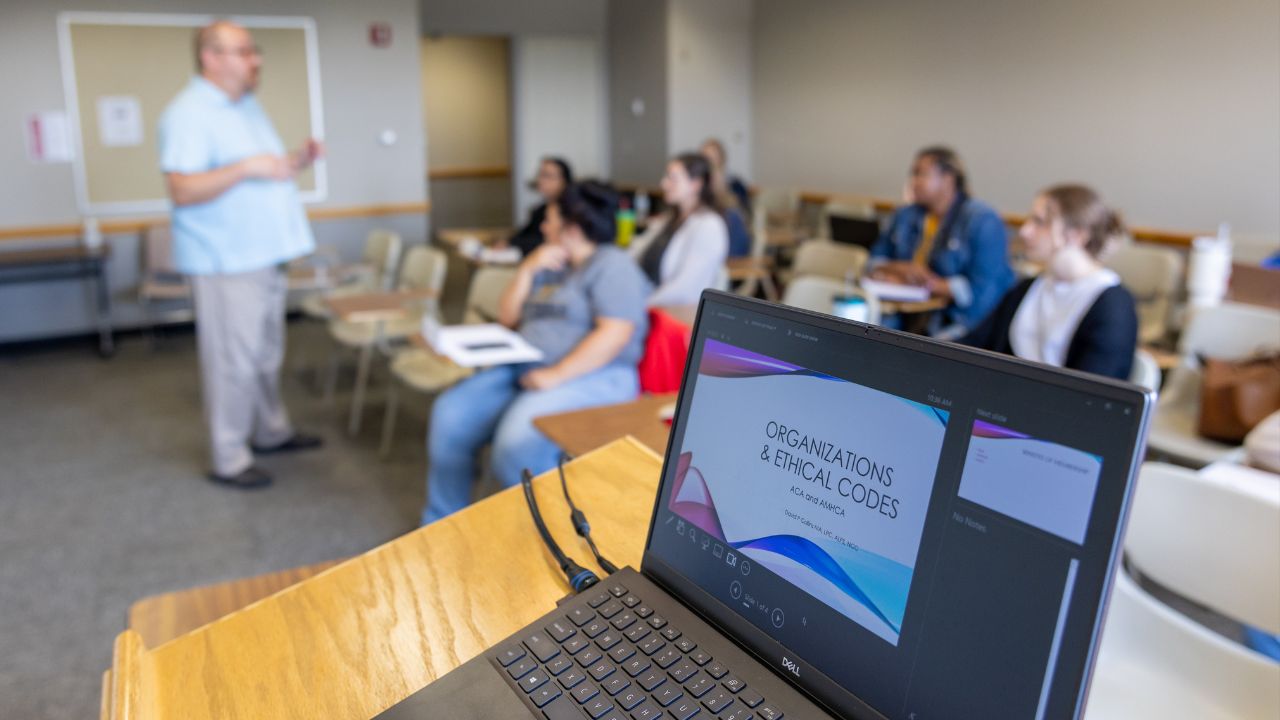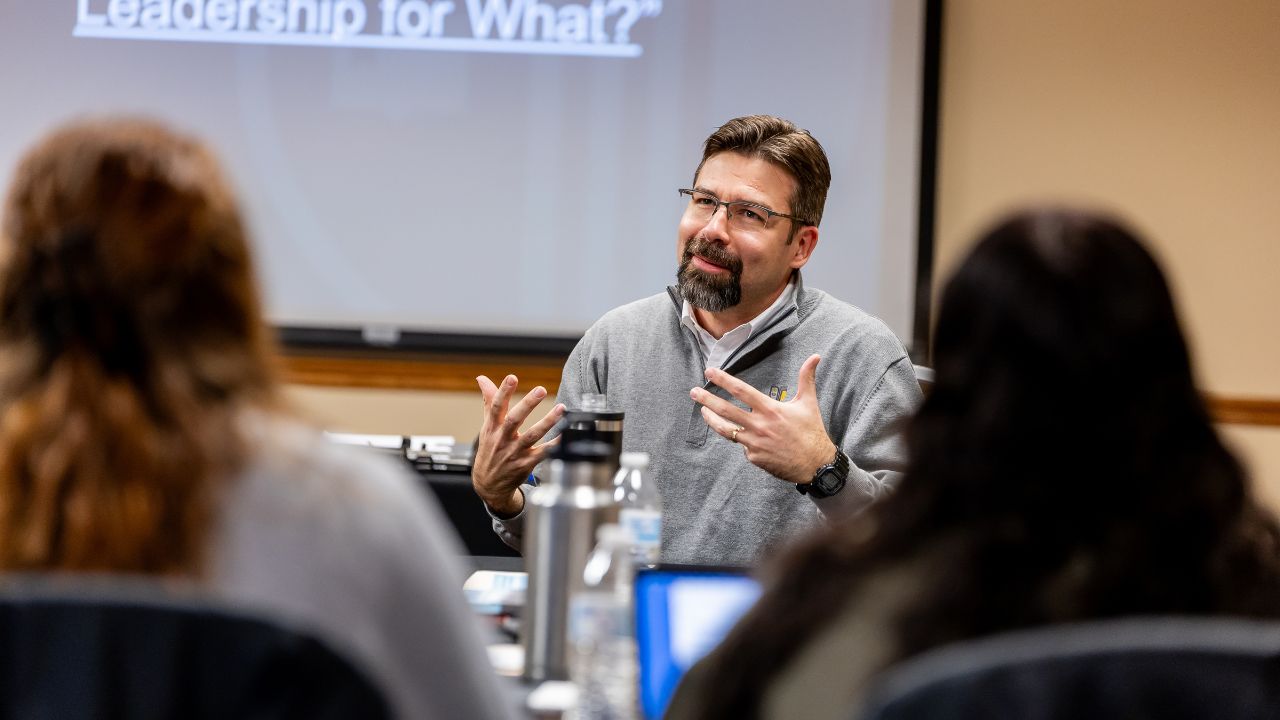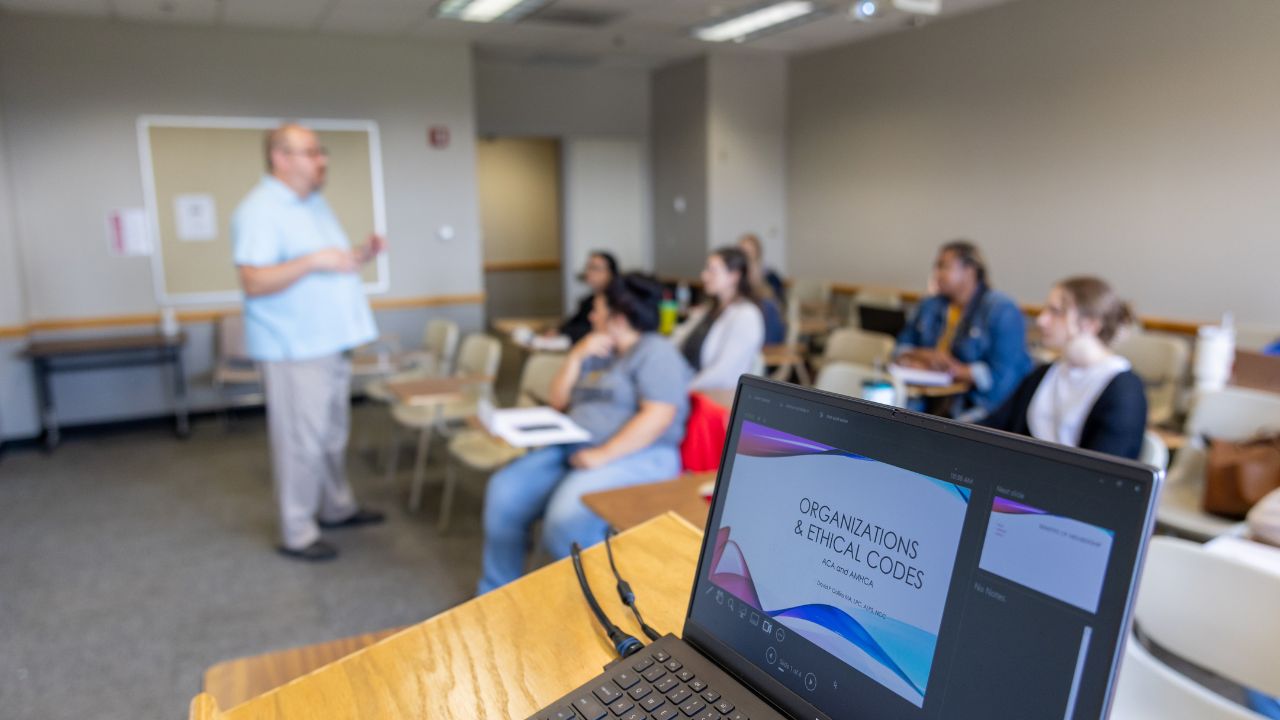
How do you deal with stress in grad school?
College can be a stressful time for many students, and grad school is no different. In fact, grad school might even be worse, thanks to the more intense academic pressures and (often) increased responsibilities outside the classroom.
Whether you’re considering enrolling in grad school or you’re already well into your master’s degree, you should consider these 10 strategies for dealing with stress.
- Get Organized
It’s easy to get stressed when you can’t get focused. When your desk, your room, your schedule, or your life is cluttered and messy, focusing on the next right thing is next to impossible. And when you can’t focus well enough to know what’s the next right thing, you’re bound to be stressed.
Not everyone is a naturally organized person. For example, creative types are frequently more disorganized, and that’s OK. Whatever your natural level of organization, see if you can take just a few practical steps to improve.
Take 10 minutes each night to straighten and declutter your desk or room. Or take 20 to 30 minutes at the start of the week to visually plan out your calendar for the coming week. Use a paper notebook or a calendar app so you know what’s happening which day.
When you take small steps to organize and declutter your day or your space, you’ll see your stress levels decline as you take control.
- Study in the Right Environment for You
Studying is a massive part of successfully completing a master’s program. Or, better stated, studying well is the real key to success. Studying well requires forethought and planning about the ideal study environment.
Sure, studying at Starbucks (or the café of your choice) is the trendy thing to do, but only if it actually serves you. Some people thrive with that constant din of background noise, but you might not.
If you’re finding yourself getting distracted by social media or YouTube, consider studying in a device-free space when possible. If you need absolute quiet, schedule sessions in the library. If you do better with group study, find like-minded friends in your classes.
But the most important point here is this: Just because a method works for someone else doesn’t mean it’s the best for you. Experiment with different study environments, then prioritize the one that gets you the best results.
- Get Plenty of Sleep
Master’s students aren’t exactly known for their world-class sleep habits, but energy drinks and coffee will only get you so far. The truth is, you’ll focus better, think more clearly, and see increased academic performance if you’re getting enough sleep (measured by the CDC as 7 or more hours every night for anyone over age 18).
Many master’s students are juggling multiple responsibilities, which can make it much more challenging to get to bed on time. Some are earning their degree while working full-time, serving as a graduate assistant, or attending to family responsibilities.
Still, there’s usually something you can cut out if you prioritize sleep highly enough. Netflix, social media, movie nights—for the short time that you’re in a master’s program, these might be worthy sacrifices if you want to stay well-rested and on top of your grad school responsibilities.
- Try to Exercise
Life in a master’s degree program is busy. Exercise is often the first or second thing to disappear from students’ schedules (the other top contender being sleep). This makes sense: Exercise takes time and commitment, and it’s tough to find that time during grad school.
But, just like sleep, exercise is a great tool for managing stress. It can help you deal with unexpected hurdles that come up in the course of your studies. The Mayo Clinic reports that just about any form of exercise can reduce stress levels and boost endorphins.
- Don’t Be Afraid to Ask for Help
If you’re struggling under the weight of stress, it’s tempting to assume you’re alone, or that everything would be OK if you just did better or worked harder. But these thoughts are false. The truth is that stress in grad school is normal and common. And it’s OK if you need a little help dealing with it. Don’t be afraid to ask for that help.
What does asking for help look like? Here are a few examples:
- Speak with a counselor (at school or at your church) about what’s causing your stress and how to manage it.
- Reach out to trusted friends or family for help with childcare, if applicable.
- Speak with your employer to explore options for reducing workload or shifting responsibilities.
- Discuss your course load with your academic advisor or admissions counselor.
- Take Time to Meditate and Pray
One of the first things to go when life gets busy is time for quiet reflection. It’s easy to fall into a trap where we think we’re too busy to slow down. Too busy to pray, meditate, and read the Scriptures. Of course, we know that doing so is beneficial, and we know that when we take the time, we feel better, more grounded, more connected to God.
No matter how busy life gets, reserve time for these crucial means of grace. You shouldn’t primarily do so with the goal of relieving stress, of course. But you’ll likely notice that lowered stress levels are a beneficial byproduct.
If you are a graduate student at Geneva College, faculty and staff can be enlisted to come alongside you to pray, listen and encourage you when you’re feeling stressed. Having an active spiritual life gives meaning to what you are trying to accomplish, as well as an eternal perspective.
- Don’t Dedicate All Your Time to Studying
Yes, this might seem counterintuitive, but think about other times of stress in your life. Did a scorched-earth policy, when you eliminated absolutely everything expendable, really work? Probably not.
We weren’t created to be robots or automatons. We all need some leisure or relaxation time. We may need less of it than we think we do, but we do need some. As you refine and reevaluate your schedule, it’s smart to cut back on leisure, but don’t eliminate it altogether.
- Don’t Procrastinate
Procrastination can be one of the biggest hurdles to success, and yet it’s something that most of us do from time to time. While you’re in grad school, it’s especially important to avoid procrastination simply because your schedule is so full. If you push off that thing that you need to do this evening, you’ll lose time for whatever you had scheduled for the next morning.
If you’re struggling to find the motivation to start, simply focus on starting — not finishing. Maybe you won’t finish the task in this time slot, but at least you got it started.
- You Don’t Have to Be a Perfectionist
You’ve heard it said that the perfect is the enemy of the good, and it’s true. Trying to make an assignment, presentation, or paper perfect is a significant stressor for many students. But your professional life doesn’t (or won’t) work this way. Only in very few occupations is perfection ever demanded or expected.
Get comfortable with the idea of “good enough.” Turning in something that’s good enough relieves the stress of having to get it perfect.
- Believe in Yourself
If you don’t believe that you’re capable of succeeding in your course of study, you’ll find yourself in an endless loop of self-doubt and stress. Simply believing what is true — that you are prepared and equipped for success — can relieve the stress of self-doubt.
There’s pretty much no avoiding it: Grad school is going to be stressful. But with these strategies, you can lower your stress levels and better deal with the stress you have.
If you’re considering going back to school for your master’s degree, consider Geneva College, a Christ-centered academic institution with numerous graduate programs. Our graduate admissions team is ready to help you find the program that’s right for you.
Opinions expressed in the Geneva Blog are those of its contributors and do not necessarily represent the opinions or official position of the College. The Geneva Blog is a place for faculty and contributing writers to express points of view, academic insights, and contribute to national conversations to spark thought, conversation, and the pursuit of truth, in line with our philosophy as a Christian, liberal arts institution.
Sep 13, 2021Graduate StudiesRelated Blog Posts
Request Information
Learn more about Geneva College.
Have questions? Call us at 724-847-6505.











 Online Course Login
Online Course Login